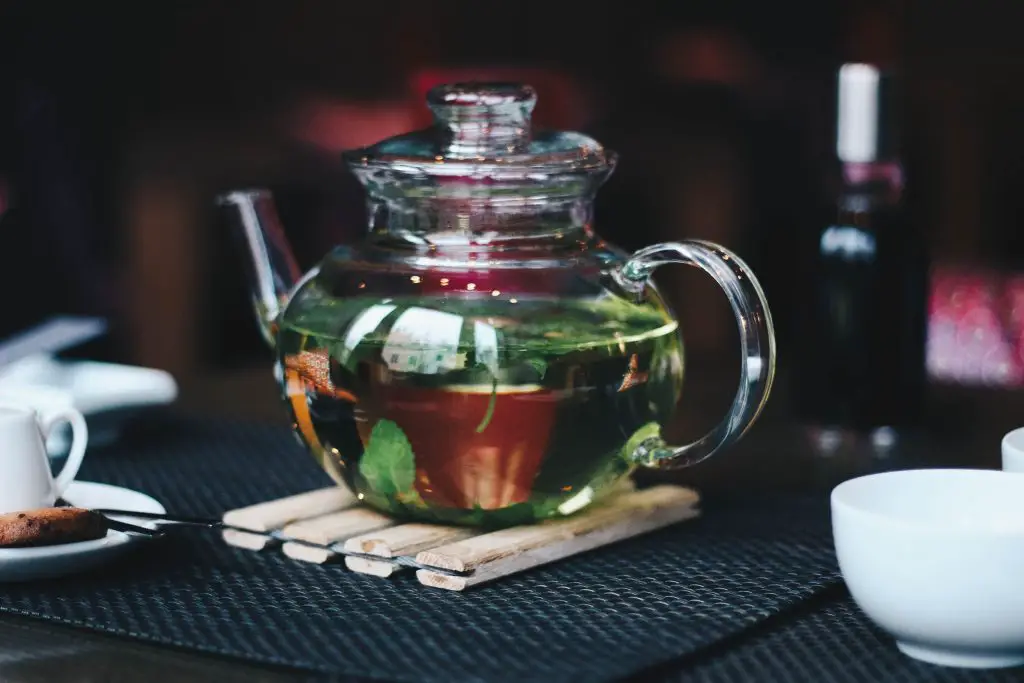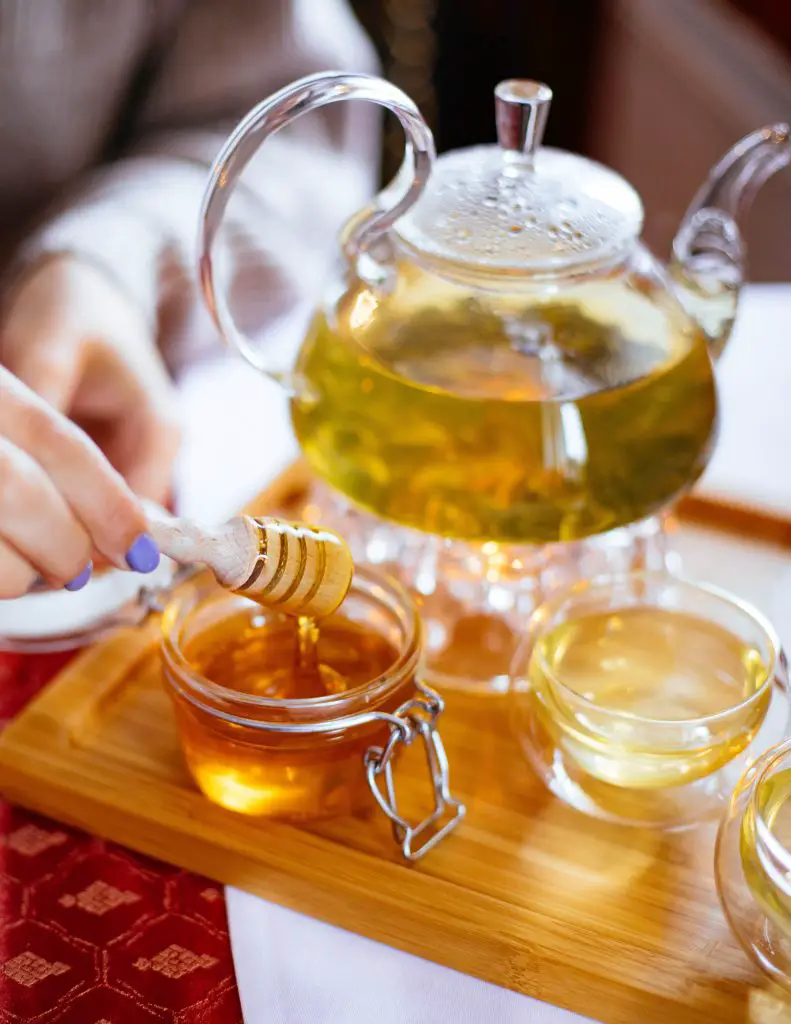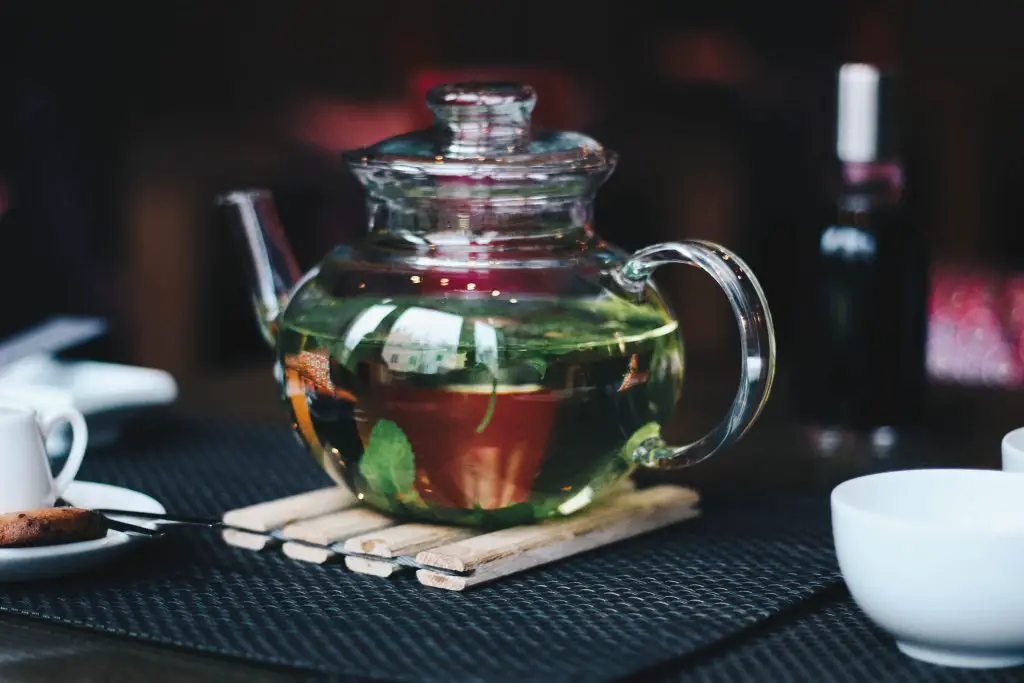What's On This Page
When you take a sip of tea, we all know that feeling is just too bitter. It’s enough to make you want to give up on tea entirely. But before you do, there are a few things you can try to get rid of that bitter taste. Even if you brew your tea for too long, keep it in the wrong space, or the water is too hot, you can still fix your bitter tea. Here are six ways to make your tea less bitter.
Add a pinch of baking soda.
- Add a dash of honey or agave syrup. No amount of sugar will remove all the bitterness; sweetening it up a bit can mask the taste.
- Pour over ice. Adding ice waters it down and helps conceal the bitterness.
- Before you even spoil it, master the art of brewing the tea. The art involves not overboiling the water. Once the water starts boiling, remove it from the stove and let it cool for 1-2 minutes before adding the tea leaves.
- Use high-quality tea leaves for better tasting and less bitter tea.
- Do not over brew the tea by adding more leaves instead of steeping it longer. After brewing, let it rest to enhance the flavor.

What makes the tea bitter?
More caffeine in tea makes it taste bitter. The water may be too hot or too cool if there is not much coffee. However, when the water is too cool, it leaves the tea tasting weak or keeps the tea in a wet environment.
Store tea in cool, dark, and dry areas. If all the mentioned possibilities are out of the question, the teapot may not be clean, or you may have brewed your tea for too long. Stick to the standard brewing time to avoid the bitter taste. There are also natural chemicals in tea leaves that leave a bitter taste. These are polyphenols that cause the tea to taste like red wine and theophylline.
How to make black tea less bitter
Add a sweetener, and a pinch of baking soda, pour hot tea over ice, do not overboil the water, use high-quality tea leaves, do not over brew the tea, and allow the tea to rest before enjoying.
Sweeteners involve lemon, sugar, honey, or agave. The best way to reduce tea bitterness is to add something sweet. This method hardly messes with the brew. Nite that each sweetener has its taste variation and health benefits. Make sure you add little, no matter which one you choose.
Adding lemon gives a bittersweet taste and enhances the tea’s flavor. It can be added to any tea but is for black and green teas. Besides being a sweetener, lemon juice is a healthy antioxidant for cell repair, skin smoothness, and immune health.
Adding lemon to tea in place of a sugary sweetener makes your tea healthy. It also lowers the risk of certain diseases, helps with digestion, and flushes out your body’s toxins. Add a little splash or squeeze of a slice because adding too much will make it taste very acidic.

Monk Fruit and stevia are healthier, natural sugar substitutes. It has a smooth flavor, although the aftertaste sometimes leaves a slight bitterness. Iced sweet tea recipes need a dash of baking soda to remove bitterness and make the tea less cloudy. Do not add too much or taste dry and powdery.
Add ice as needed to make it colder. If the tea is still too bitter for you, add some sweetener, syrup, or lemon to add its sweetness. For a less bitter tea, also boil your water but avoid overcooking your water. Do not let the water boil. Let it cool for a minute before adding the tea bag or leaves.
Higher-quality leaves for brewing give your tea a better taste and sweetness of the tea. Many teas are from different companies and places, so try other teas before you find your favorite.
Do not over brew the tea. Over brewing tea reduces its taste and quality, making it more bitter and less enjoyable. As tea steeps, it releases the bitter tannins in the leaves, so the longer you steep your tea, the more tannins it releases (Teahow.com).
How to make green tea less bitter
By better quality green tea to avoid bitterness. Pick teas made up of loose leaves from a reputable seller. Loose-leaf teas have healthy and flavorful compounds in the leaves for better taste. Tea can taste different depending on where the tea was grown, the nutrition content of the soil, and the climate.
Also, pay attention when brewing your tea. Taking more steeping time will ruin your green tea. Brew a new green tea blend for 1 minute and taste after every 30 seconds looking for a flavor that works for you. For a light flavor, steep the tea for a shorter time.
Add a dash of fresh lemon juice or slices to remove bitter flavors. Adding a bit of honey, raw sugar, or a stevia leaf adds a little sweetness to this tea. You can also use herbs and spices. Green tea blends well with fresh ginger, resulting in tea with a spicy taste. Add a few fresh mint leaves and other additives like cinnamon sticks and nutmeg for refreshing flavors.
Find many flavored green teas at your grocery store or favorite tea shop. Also, try making a flavored tea as the tea base with other flowers, herbal teas, and spices for flavor. You can also make blends by adding a fresh or dried flower to your green tea.
There are multiple alternatives, including green teas infused with fruit. These fruit teas have a sweeter and more vibrant flavor. Fruit-infused green teas can be iced tea or hot tea.
Is bitter green tea bad for you?
No, it is not bad for you. It helps reduce cholesterol in the blood. It cleanses the liver by detoxing your liver and also cleansing your bowels. Patients reduce levels of cholesterol in their blood due to anti-inflammatory properties. The bitter taste is also beneficial for stimulating and aiding digestion. Bitter green tea can help with weight loss. The catechins in the tea act as natural fat burners and appetite suppressants. They also slow down carbohydrate absorption, which helps regulate blood sugar levels.
Green tea can have many benefits, but it is essential to remember that it is still a caffeine-containing beverage and should be consumed in moderation. This prevents sugar cravings and provides a steadier source of energy. In moderation, bitter green tea can be part of a healthy diet. It is essential to listen to your body, as too much bitter green tea can cause stomach upset in some people. If you have trouble drinking it, try adding a natural sweetener or flavored green tea bags to make it more palatable.

Is bitter tea good for you?
Yes, it is. It gives your heart the right balance of anti-inflammatory properties and helps in cleansing the blood and de-clogging the fats in arteries and veins. Only the taste is unpleasant, but it improves heart health. It is also rich in antioxidants, which scavenge harmful toxins and by-products that can damage cells, leading to inflammation. These antioxidants may help protect cells and reduce the risk of chronic diseases like heart disease, cancer, and diabetes. Bitter tea has many health benefits. It enables the body to lower cholesterol, cleanse the liver, and improve heart health. The only downside to it is its bitter taste. Try adding lemon, honey, or other sweeteners to make it palatable. Many flavored teas are also available to make drinking bitter tea more enjoyable.
How to make iced tea less bitter
Add some sweeteners, and do not add your iced tea to boiling. Additions like syrups, sugar, honey, or monk fruit can make iced tea taste sweeter. You can also add a slice of lemon or lime to reduce the bitter taste in your tea. Brew your tea at double strength and dilute it with ice or cold water. This will make the iced tea less bitter and more flavorful. You can also try different teas before you find your favorite.
Is green tea bitter
Green tea is prone to bitterness because it contains more catechins. Catechins have multiple health benefits in tea (Senchateabar.com). They are a type of flavonoid known to have antioxidants, anti-inflammatory, and anticancer properties. The bitterness in green tea is due to the high concentration of catechins. The irritation can be reduced by using higher quality leaves, shorter steeping time, and adding lemon or honey. Some people may enjoy the bitter taste of green tea, while others may not.
Try different teas before you find your favorite. Brewing time is one of the most critical factors in reducing bitterness. The longer you steep your tea, the more tannins are released, making the tea more bitter. Tannins are astringent and can cause an unpleasant dry feeling in your mouth. Steep your green tea for 1-2 minutes to avoid bitterness. You can also reduce the number of tea leaves you use. Using more tea leaves will result in a more pungent and bitter tea. Try using one teaspoon of green tea leaves per cup of water.
Green tea is a healthy drink with many benefits but it can be bitter. If you don’t like the taste of green tea, there are ways to make it less painful. Try using a higher quality of leaves, shorter steeping time, adding lemon or honey, or diluting it with ice or cold water. You can also try different teas before you find your favorite. Brewing time is one of the most critical factors in reducing bitterness. The longer you steep your tea, the more tannins are released, making the tea more bitter.
Leave a Reply